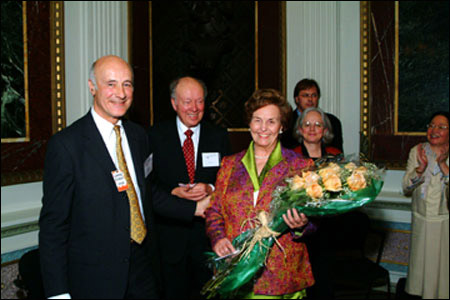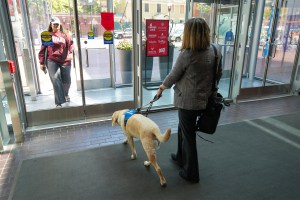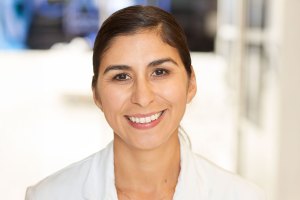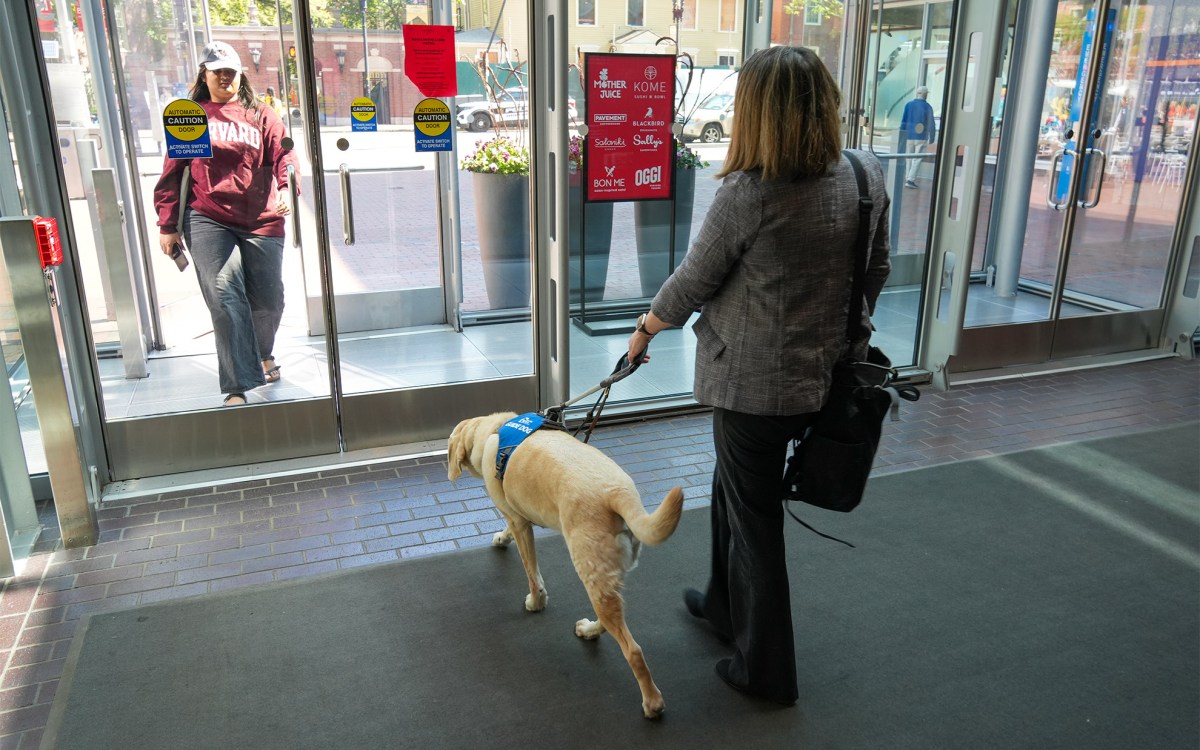KSG announces Roy and Lila Ash Institute:
To build on Institute for Government Innovation

The Kennedy School of Government has announced the naming of the Roy and Lila Ash Institute for Democratic Governance and Innovation. The Ash Institute will build upon the Institute for Government Innovation, established in 2001 by a $50 million endowment from the Ford Foundation. A gift from Roy and Lila Ash will expand the institute’s mission to advancing the understanding and practice of democracy and the innovations necessary for its success.
Kennedy School Dean Joseph S. Nye Jr. said, “This generous gift from Roy and Lila Ash will allow the institute to continue its important mission of recognizing and rewarding best practices in local, state, and federal government. We now add a vital new element to this work – the accent on effective and innovative democratic governance across the globe.”
“This institute was set up by the Kennedy School of Government and the Ford Foundation with enormous hopes and a big agenda,” said Gowher Rizvi, director of the Ash Institute. “This gift makes it possible to help us realize these goals. By broadening its scope, the institute can focus on questions of democratic governance and explore how it can best be strengthened globally. It thus provides a more comprehensive and analytical rigor to our work.”
The benefactors have dedicated their lives to serving the public good in both business and government, as well as through volunteer and philanthropic endeavors. Roy Ash is co-founder of Litton Industries and served as its director and president until 1972. He also served as chairman of the President’s Advisory Council on Executive Organization and was later director of the Office of Management and Budget.
“We have to consider the concept of democracy fragile and in need of real, constant hands-on care,” said Roy Ash. “The purpose of the institute is to encourage thoughtful and focused attention to the nature, principles, functioning, and continued innovation and adaptations essential to a living and effective democracy.”
Susan V. Berresford, president of the Ford Foundation, spoke of the institute’s mission. “Democracy is both robust and fragile. Robust because it seems to weather all the mistakes we make and it seems to have the ability to adapt and adjust endlessly. Fragile because its survival depends on the willingness of people to participate, on citizens’ respect for government’s efficiency and effectiveness, and on evidence of reliability and responsiveness. Absent these elements, democracy corrodes or dies.”




